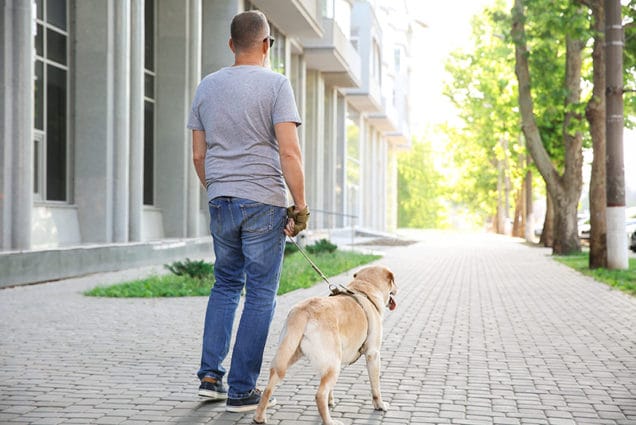How Can Service Dogs Help People With Hearing Loss?
If you live with deafness or profound hearing loss, then you know daily tasks involving sound often require extra technology and some creativity. You may have warning lights attached to your front door to alert you to a knock or a doorbell ring, your alarm clock may vibrate under your bed instead of blare on your nightstand, and answering phone calls may depend on whether you are holding the phone at any given time. But what if just one thing could provide support for each of those tasks and companionship at the same time?
Hearing Dogs Grant Increased Independence to Individuals with Hearing Loss
Service dogs can play a positive role in the lives of individuals with deafness or hearing loss (unaided). Hearing dogs, as they are called, are trained to alert owners to a variety of important sounds, such as doorbells, emergency alarms, and even crying babies. If you are an adult over 18 years of age living alone, with other individuals who are deaf or hard of hearing, or with dependents, and you do not have another dog in the home, you may be eligible to receive a hearing dog, free of charge, from an organization that specializes in service dog training and placement.
What Type of Training do Hearing Dogs Have?
Service dogs receive extensive training, both general obedience and training specific to hearing loss, before being placed with clients. They are typically trained to respond to a basic set of sounds, such as doorbells, knocks on the door, phones, and emergency alerts. However, each dog’s training can also be customized to fit your specific needs. Many factors are considered when pairing you and your hearing dog, including the dog’s size and breed, to ensure that the dog is a good fit for your lifestyle. Before a dog is placed with a client, individuals are typically required to complete online and/or on-site training to ensure they are well-matched with their dog and ready to maintain and continue their dog’s training at home. Bonding with the dog, learning commands, and practicing them together are essential steps to creating a successful partnership between you and your hearing dog.
That partnership between a hearing dog and a person with hearing loss can become invaluable, both for the increased independence the dog can provide its owner and for the companionship. Nonetheless, a hearing dog does require a financial, mental, and physical commitment, as individuals will need to provide and care for their service dog for years to come.
Hearing loss is a challenge, but it does not have to limit your independence. Service dogs can help their owners navigate some of life’s most important sounds with greater ease and freedom.






